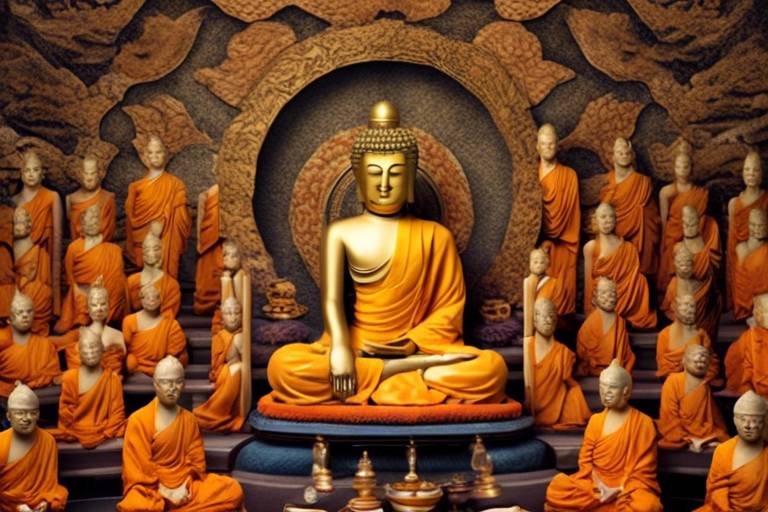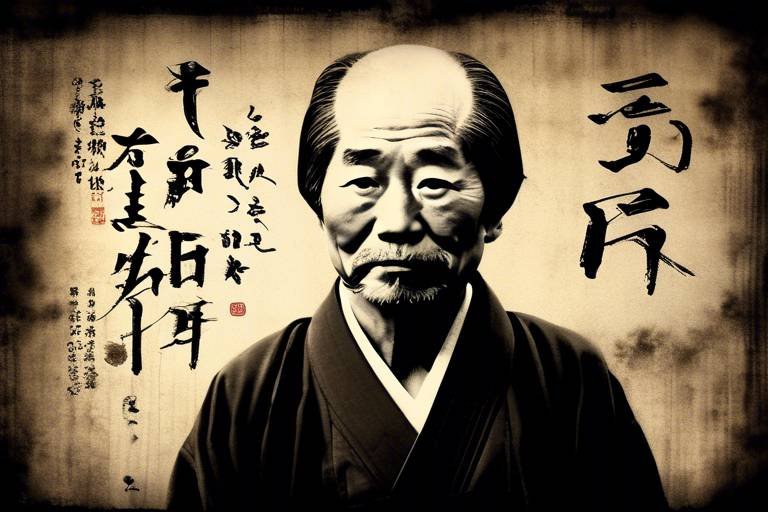Clearing the Fog: Deciphering Confucius and His Philosophy
Have you ever wondered how ancient teachings can still resonate in our fast-paced modern world? Confucius, a name that echoes through the ages, offers profound insights that can illuminate our paths even today. Born in 551 BCE in the state of Lu, Confucius was not just a philosopher; he was a thinker, a teacher, and a guide who sought to address the moral and social dilemmas of his time. His teachings, encapsulated in the Analects, provide a rich tapestry of ideas that challenge us to reflect on our values, behaviors, and the very fabric of society.
Confucius lived during a time of great political turmoil in China, a period marked by the decline of the Zhou Dynasty. This chaotic backdrop fueled his desire to promote a harmonious society based on ethical governance and moral integrity. His philosophy emphasizes the importance of relationships, respect, and responsibility, advocating for a world where individuals are committed to the greater good. So, what exactly did Confucius teach, and why does it matter today? Let's dive deeper into his life and core principles to uncover the relevance of his wisdom.
Understanding Confucius's life is essential to grasp his philosophy. He grew up in a modest family, where education was a luxury, but he was determined to learn. Confucius pursued knowledge relentlessly, studying various subjects, including music, poetry, and history. His teachings were shaped not only by his education but also by the socio-political challenges he faced. The constant strife and the lack of moral leadership in his society ignited a fire within him to seek answers and propose a new way of thinking.
At the heart of Confucianism are key principles that serve as the foundation for moral and social conduct. Two of the most significant concepts are Ren (benevolence) and Li (ritual propriety). These ideas are not just philosophical musings; they are practical guidelines for living a meaningful life. Ren encourages us to cultivate compassion and empathy, while Li reminds us of the importance of rituals and respect in our interactions. Together, they create a framework for fostering a harmonious society.
Ren, often translated as benevolence or humaneness, is central to Confucius's teachings. Imagine a world where kindness reigns supreme, where individuals genuinely care for one another. This is the essence of Ren. It urges us to look beyond ourselves and consider the feelings and needs of others. In interpersonal relationships, practicing Ren means actively listening, showing empathy, and offering support. It’s about building connections that are based on mutual respect and understanding.
Implementing Ren in everyday interactions fosters compassion and understanding. Here are a few practical ways to embody this virtue:
- Active Listening: Pay attention when others speak, showing that you value their thoughts and feelings.
- Acts of Kindness: Small gestures, like helping a neighbor or volunteering, can make a big difference.
- Empathy: Try to put yourself in someone else's shoes to understand their perspective better.
By integrating these practices into your daily life, you contribute to a culture of kindness that can ripple through your community.
The role of Ren extends to leadership, where benevolent rulers inspire loyalty and harmony. Leaders who embody Ren are not just figureheads; they are mentors who guide their people with integrity and compassion. When leaders prioritize the welfare of their citizens, they create a just society where everyone feels valued. This principle is as relevant in today’s political landscape as it was in Confucius's time.
Li encompasses rituals and norms that govern behavior. It’s not just about following rules; it’s about understanding the significance behind them. Rituals foster respect and create a sense of order within society. When we adhere to Li, we acknowledge the shared values that bind us together, promoting harmony and stability.
Confucius emphasized moral integrity in leadership. His ideas influenced governance profoundly, urging rulers to prioritize ethics over power. Throughout history, many leaders have drawn inspiration from Confucian principles, recognizing that a society thrives when its leaders act with virtue and responsibility.
The concept of Junzi, or the noble person, is vital in Confucian ethics. A Junzi embodies the qualities of wisdom, righteousness, and benevolence. This ideal serves as a model for individuals seeking to improve themselves and contribute positively to society. The Junzi is not born; they are made through education, reflection, and a commitment to personal growth.
Confucianism's relevance persists in contemporary politics. In an age where ethical leadership is often questioned, Confucian principles can inform modern governance. By embracing the teachings of Confucius, leaders can strive for a more compassionate and just society, ensuring that their actions benefit the greater good.
1. What is the main focus of Confucianism?
Confucianism primarily focuses on moral integrity, social harmony, and the importance of relationships in society.
2. How can I apply Confucian principles in my life?
You can apply Confucian principles by practicing Ren through kindness and empathy, and adhering to Li by respecting social norms and rituals.
3. Is Confucianism relevant today?
Absolutely! Confucianism offers valuable insights into ethical leadership and social responsibility, making it highly relevant in today's world.

The Life of Confucius
Understanding the life of Confucius is essential to grasp his philosophy. Born in 551 BCE in the small state of Lu, located in present-day Shandong province, Confucius emerged during a time of great social and political upheaval in China. The **Spring and Autumn Period** was marked by fragmentation, with numerous states vying for power, leading to widespread chaos and moral decline. This turbulent backdrop profoundly influenced Confucius's thoughts and teachings.
From a young age, Confucius exhibited a passion for learning. He was not born into wealth; his family faced financial difficulties after his father's early death. Nevertheless, he pursued education with fervor, studying various subjects, including music, poetry, and history. His dedication to self-improvement would later lay the foundation for his philosophical insights. It's fascinating to think about how his humble beginnings shaped his views on morality and governance—an irony that resonates with many of us today.
As he grew older, Confucius took on various roles, including that of a teacher and a government official. His teaching career began around the age of 30, and he quickly gained a reputation for his wisdom and ethical guidance. He believed in the transformative power of education, famously stating, "Is it not a joy to have friends come from afar?" This emphasizes his belief that learning and knowledge should be shared and celebrated. Confucius's classroom was not just a place for academic instruction; it was a sanctuary for nurturing virtue and character.
However, Confucius faced considerable challenges in his political career. Despite his noble intentions and expertise, he struggled to implement his ideas in a political landscape dominated by corruption and power struggles. His vision of a just society, governed by moral leaders, often clashed with the harsh realities of his time. This disillusionment led him to travel extensively across various states, seeking rulers who would embrace his teachings. These travels were not just a quest for political power; they were a pilgrimage for moral revival.
Throughout his life, Confucius encountered numerous hardships, including personal losses and political failures. Yet, these experiences only deepened his resolve to promote a society rooted in ethical principles. He famously stated, "Our greatest glory is not in never falling, but in rising every time we fall." This resilience is a testament to his character and a reminder that adversity can lead to profound insights and growth.
Confucius's teachings were eventually compiled by his disciples into a collection known as the Analects, which remains a cornerstone of Confucian philosophy. His thoughts on morality, ethics, and governance continue to resonate, not just in China but across the globe. By examining the life of Confucius, we can better appreciate the depth and relevance of his ideas in navigating the complexities of modern society.
- What were the major influences on Confucius's philosophy? Confucius was influenced by the social chaos of his time, his own experiences, and earlier Chinese philosophies, particularly those related to ethics and morality.
- How did Confucius view education? Confucius saw education as a vital tool for personal and societal transformation, advocating for lifelong learning and moral development.
- What is the significance of the Analects? The Analects is a collection of Confucius's sayings and ideas that provides insight into his thoughts on ethics, governance, and human relationships.
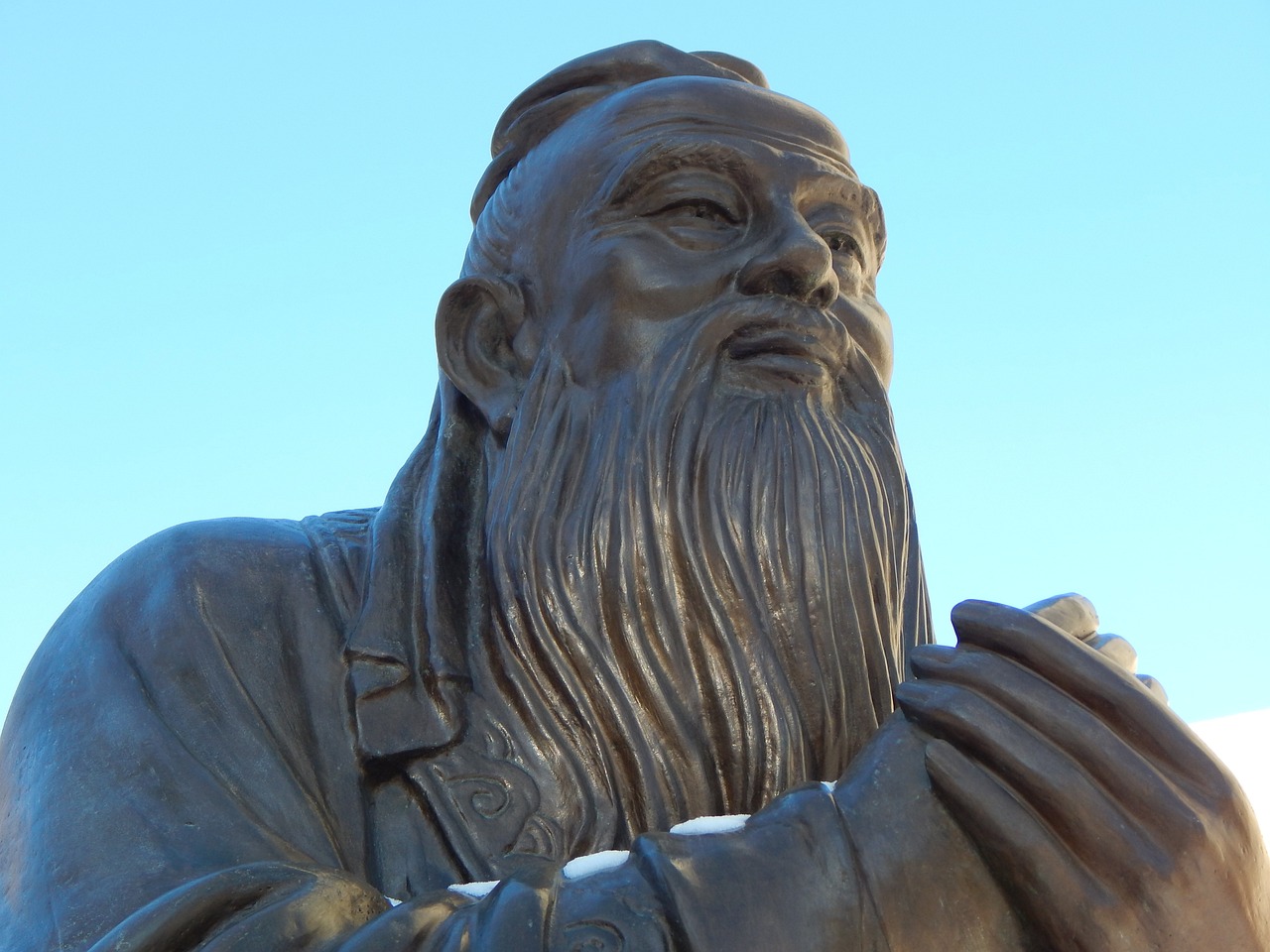
Core Principles of Confucianism
Confucianism, a philosophical system rooted in the teachings of Confucius, is not just a set of abstract ideas but a practical guide for living a virtuous life. At its core, this philosophy is built upon key principles that shape moral conduct and social harmony. Among these principles, two stand out as particularly significant: Ren and Li. Understanding these concepts is essential for anyone looking to grasp the depth of Confucian thought and its application in both personal and societal contexts.
Ren, often translated as benevolence or humaneness, is the heart of Confucian ethics. It emphasizes the importance of compassion and empathy in human interactions. Imagine a world where everyone treated each other with kindness—this is the essence of Ren. Confucius believed that by cultivating this virtue, individuals could foster deeper connections and create a more harmonious society. The implications of Ren extend beyond personal relationships; it serves as a guiding principle for community and societal engagement, advocating for a sense of responsibility towards others.
On the other hand, Li refers to the rituals and norms that govern behavior in society. It encompasses everything from formal ceremonies to everyday etiquette. Think of Li as the framework that holds society together, much like the rules of a game that ensure everyone plays fairly. By adhering to Li, individuals show respect for tradition and the people around them, reinforcing social order. Confucius taught that when people observe these rituals, they not only honor their ancestors but also cultivate a sense of belonging and mutual respect within their communities.
To illustrate the relationship between Ren and Li, consider the following table:
| Principle | Description | Impact on Society |
|---|---|---|
| Ren | Benevolence and compassion towards others. | Fosters deeper relationships and societal harmony. |
| Li | Rituals and norms governing behavior. | Ensures social order and respect among individuals. |
In practice, the interplay between Ren and Li can be seen in various aspects of daily life. For example, when someone helps an elderly person cross the street, they are practicing Ren. However, if they do so while following the social norms of greeting and showing respect, they are also observing Li. This duality is what makes Confucianism so rich and applicable to various situations. It encourages individuals not only to act kindly but to do so in a manner that acknowledges and respects the cultural and social fabric of their community.
In conclusion, the core principles of Confucianism—Ren and Li—serve as foundational elements that guide moral behavior and societal interactions. By embodying these virtues, individuals can contribute to a more compassionate and orderly world. As we navigate the complexities of modern life, the teachings of Confucius remind us of the timeless relevance of kindness and respect in our interactions with others.
- What is Confucianism? Confucianism is a philosophical system based on the teachings of Confucius, focusing on morality, social relationships, and justice.
- What are the main principles of Confucianism? The main principles include Ren (benevolence) and Li (ritual propriety), which guide ethical behavior and social harmony.
- How can I apply Confucian principles in my life? You can apply these principles by practicing kindness and respect in your daily interactions and by adhering to social norms that promote harmony.
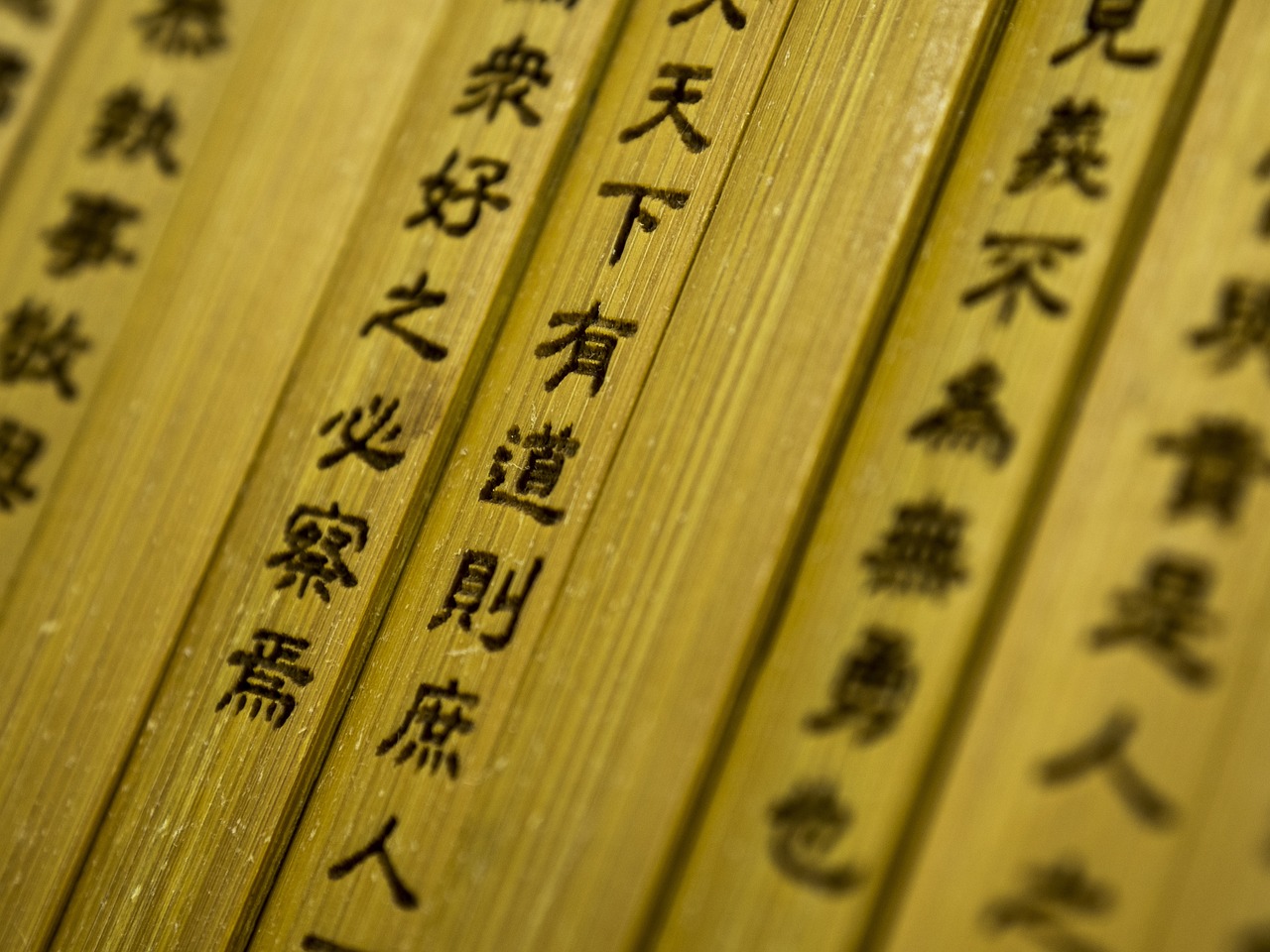
Ren: The Virtue of Benevolence
When we delve into the teachings of Confucius, one concept stands out as a beacon of moral clarity: Ren. Often translated as "benevolence" or "humaneness," Ren encapsulates the essence of what it means to be a compassionate human being. Imagine for a moment a world where kindness is the norm, where people genuinely care for one another's well-being. This is the vision that Confucius had in mind, and it is a vision that resonates deeply in our modern society.
At its core, Ren is about fostering deep interpersonal connections. It encourages us to look beyond ourselves and consider the feelings and experiences of others. When we practice Ren, we cultivate an environment of empathy and understanding. For instance, think about a time when someone showed you kindness during a tough moment. That simple act of compassion likely had a ripple effect, inspiring you to extend the same kindness to others. This is the transformative power of Ren—it creates a chain reaction of goodwill.
Confucius believed that practicing Ren is not just a personal virtue but a societal necessity. It serves as a foundation for building harmonious communities. When individuals embody Ren, they contribute to a culture of respect and cooperation. This is especially crucial in today's fast-paced world, where it’s easy to become disconnected from one another. By prioritizing Ren in our daily interactions, we can bridge the gaps that often divide us.
One might wonder, how can we truly practice Ren in our everyday lives? Here are a few practical ways to embody this virtue:
- Active Listening: Take the time to listen to others without interrupting. This simple act shows that you value their perspective.
- Acts of Kindness: Whether it's helping a neighbor or volunteering, find ways to give back to your community.
- Express Gratitude: Acknowledge the efforts of those around you. A simple "thank you" can go a long way in fostering goodwill.
Furthermore, the implications of Ren extend beyond personal relationships; they reach into the realm of leadership. Confucius posited that a leader should embody Ren to inspire loyalty and create a just society. When leaders prioritize benevolence, they cultivate trust and respect among their followers. Imagine a workplace where the boss genuinely cares about the employees' well-being—such an environment fosters productivity and morale. This is the essence of Ren in leadership.
In summary, Ren is more than just a philosophical idea; it is a call to action. It urges us to act with compassion and empathy in all our interactions. By embracing Ren, we can contribute to a more harmonious and understanding world, echoing Confucius's timeless wisdom. So, the next time you encounter someone in need, ask yourself: How can I practice Ren today?
What does Ren mean in Confucianism?
Ren refers to the virtue of benevolence or humaneness, emphasizing compassion and kindness in interpersonal relationships.
How can I practice Ren in my daily life?
You can practice Ren by actively listening to others, performing acts of kindness, and expressing gratitude.
Why is Ren important for leaders?
Leaders who embody Ren inspire loyalty and create a just society by fostering trust and respect among their followers.

Practicing Ren in Daily Life
Practicing Ren in daily life can seem overwhelming at first, but it’s truly about making small, intentional choices that lead to greater compassion and understanding in our interactions. Imagine being in a crowded subway during rush hour. Everyone is pushing and shoving, and tempers are flaring. Now, picture yourself taking a deep breath, stepping back, and offering your seat to someone who looks tired or unwell. That simple act of kindness is a perfect example of how Ren can manifest in our everyday lives.
Ren isn’t just a lofty ideal; it’s a practical approach to living harmoniously with others. It encourages us to consider the feelings and perspectives of those around us. In practice, this means actively listening when someone speaks, showing empathy in conversations, and being willing to lend a hand when others are in need. For instance, when a colleague is struggling with a project, instead of turning a blind eye, you could offer your expertise, creating a supportive environment.
Furthermore, embodying Ren can extend to our communities. Volunteering for a local charity, participating in community clean-up events, or simply helping a neighbor carry groceries are all tangible ways to practice benevolence. These actions not only benefit those around us but also cultivate a sense of belonging and connection within our communities. To put it simply, practicing Ren means choosing to be the reason someone believes in the goodness of people.
Let’s also consider the role of Ren in our digital interactions. In today’s fast-paced world, where social media can sometimes foster negativity, you can choose to spread positivity instead. Whether it’s leaving encouraging comments on someone’s post or sharing uplifting content, these small gestures can create ripples of kindness that extend far beyond your immediate circle. Remember, practicing Ren is about creating an atmosphere of respect and care, no matter where you are.
Ultimately, practicing Ren is about cultivating a mindset that prioritizes kindness and understanding. It’s about recognizing our shared humanity and acting in ways that uplift others. By embracing this philosophy in our daily interactions, we can contribute to a more compassionate society, one small act at a time. So, the next time you find yourself in a challenging situation, ask yourself: How can I practice Ren here? You might just be surprised at the positive impact your actions can have!
- What is Ren in Confucianism?
Ren is a core virtue in Confucianism, often translated as benevolence or humaneness. It emphasizes compassion and empathy in interpersonal relationships. - How can I practice Ren daily?
You can practice Ren by engaging in acts of kindness, showing empathy, and making an effort to understand others' perspectives in your everyday interactions. - Why is practicing Ren important?
Practicing Ren fosters social harmony and strengthens community bonds, creating a more compassionate and understanding society. - Can Ren be practiced online?
Absolutely! Practicing Ren can extend to online interactions by spreading positivity, offering support, and engaging respectfully with others on social media platforms.
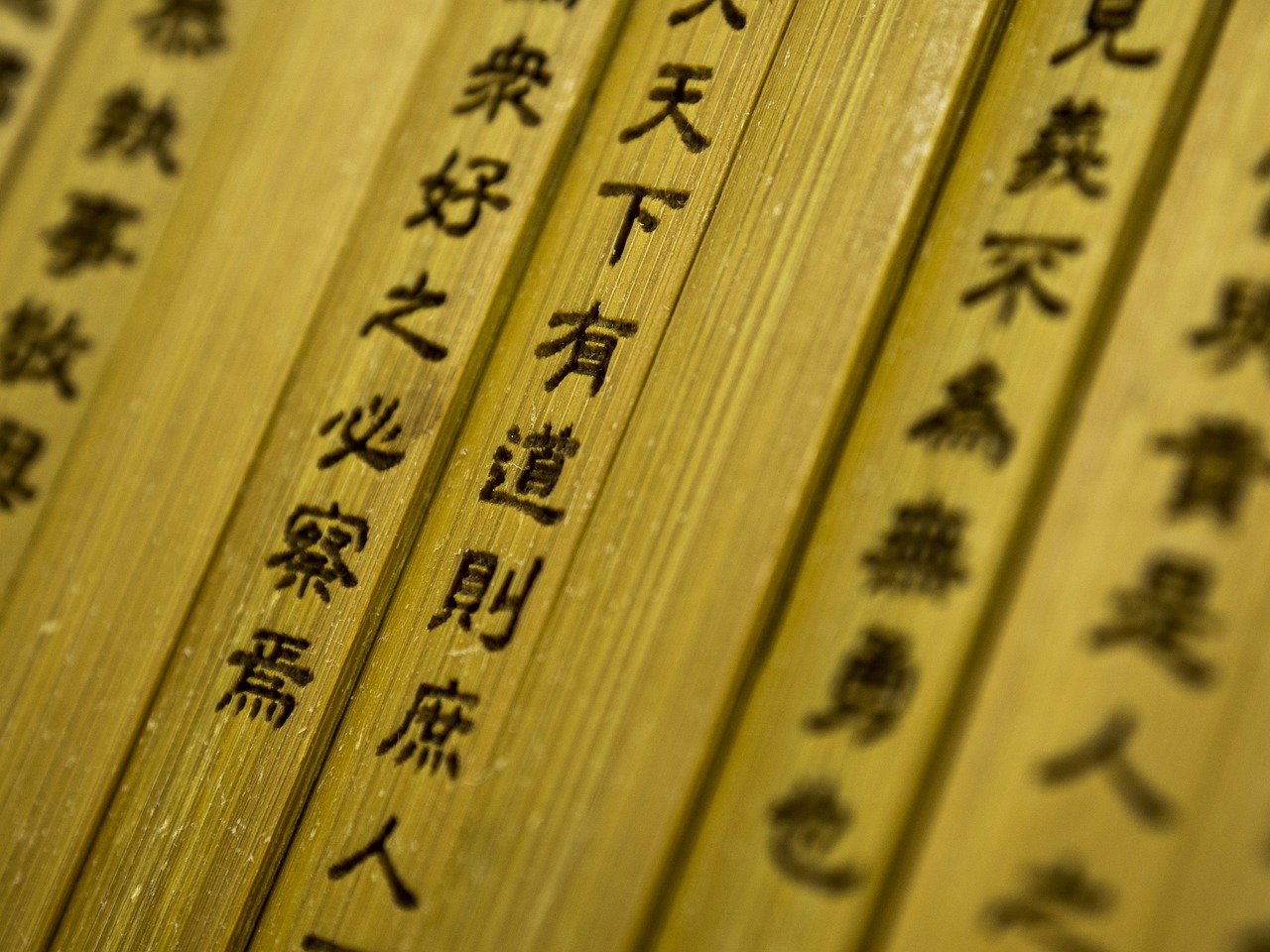
Ren and Leadership
When we think about leadership, what often comes to mind? Is it the power to make decisions, or perhaps the ability to inspire others? In the realm of Confucian philosophy, the concept of Ren—or benevolence—takes center stage as a guiding principle for effective leadership. Confucius believed that a true leader must embody Ren to foster loyalty, inspire trust, and create a harmonious society. It's not just about issuing commands; it's about cultivating a deep sense of empathy and understanding towards others.
The essence of Ren in leadership can be likened to a gardener nurturing plants. Just as a gardener must provide the right conditions for growth—sunlight, water, and care—a leader must create an environment where people feel valued and respected. When leaders practice Ren, they cultivate a culture of compassion and support, which in turn encourages their followers to reciprocate these values. This leads to a cycle of positivity that enhances collaboration and productivity.
Moreover, Ren is not merely an abstract idea; it manifests in practical ways. For instance, leaders who demonstrate Ren often engage in active listening, showing genuine concern for their team members' well-being. They acknowledge the contributions of others and create opportunities for everyone to shine. This approach not only boosts morale but also fosters a sense of belonging among team members.
To illustrate the impact of Ren in leadership, consider the following table that highlights the characteristics of a leader embodying Ren versus one who does not:
| Characteristics | Leader with Ren | Leader without Ren |
|---|---|---|
| Empathy | Actively listens and understands team members' concerns | Ignores feedback and focuses solely on tasks |
| Trust | Builds a foundation of trust through honesty and integrity | Relies on authority and fear to maintain control |
| Collaboration | Encourages teamwork and values each member's input | Promotes competition and individualism |
| Support | Provides guidance and resources to help others succeed | Withholds support, leading to frustration and disengagement |
In conclusion, Ren is a pivotal element of Confucian leadership that transcends traditional notions of authority. By embracing benevolence, leaders can create a ripple effect that transforms not only their teams but also the broader society. This approach to leadership emphasizes that it is not enough to merely lead; one must lead with heart and integrity. In a world where leaders are often scrutinized for their decisions, those who embody Ren will stand out as beacons of hope and inspiration.
- What is Ren in Confucianism? Ren refers to the virtue of benevolence or humaneness, emphasizing compassion and empathy in interpersonal relationships.
- How can leaders practice Ren? Leaders can practice Ren by actively listening to their team, showing genuine concern for their well-being, and fostering a supportive environment.
- Why is Ren important for leadership? Ren is crucial for leadership as it builds trust, encourages collaboration, and enhances overall morale within a team.
- Can Ren be applied in modern leadership? Yes, the principles of Ren are highly relevant in contemporary leadership, guiding ethical decision-making and fostering inclusive environments.

Li: The Importance of Rituals
Li, a fundamental concept in Confucianism, refers to the rituals, norms, and manners that govern human interactions. At first glance, one might think of rituals as mere traditions or formalities, but in the Confucian context, they serve a much deeper purpose. They are the threads that weave the fabric of society, ensuring that individuals relate to one another with respect, dignity, and harmony. Imagine a world without rituals—chaos would reign, and the delicate balance of social order would be disrupted. Li provides the structure that allows us to engage meaningfully with one another.
Rituals in Confucianism are not just about following rules; they are about embodying values and principles that enhance our moral character. They guide our behavior in various situations, from daily greetings to significant life events like weddings and funerals. Through these rituals, we express our respect for others and the community, reinforcing the bonds that hold society together. For instance, when we bow to greet someone, we are not merely performing an action; we are acknowledging their worth and our shared humanity. This practice fosters mutual respect and understanding, which are essential for a harmonious society.
Moreover, Li encompasses a wide range of practices that extend beyond formal ceremonies. It includes everyday behaviors, such as politeness, attentiveness, and the proper way to communicate. These actions, while seemingly simple, have profound implications for our relationships and societal cohesion. When we practice Li, we cultivate a sense of belonging and responsibility towards others. It’s like the oil that keeps the machinery of society running smoothly—without it, friction and misunderstandings can arise, leading to conflict and discord.
In the realm of governance, the importance of Li becomes even more pronounced. Leaders who embody these rituals and norms set a standard for ethical behavior. They demonstrate that governance is not just about authority but also about moral integrity and respect for the people they serve. A ruler who practices Li fosters an environment of trust and cooperation, encouraging citizens to engage positively with one another. This creates a virtuous cycle where respect begets respect, leading to a stable and just society.
To illustrate the significance of Li, consider the following table that outlines key aspects of rituals and their impact on society:
| Aspect | Description | Impact on Society |
|---|---|---|
| Respect | Rituals promote mutual respect among individuals. | Fosters harmonious relationships. |
| Order | Establishes norms that guide behavior. | Creates a sense of stability. |
| Identity | Rituals reinforce cultural and social identity. | Strengthens community bonds. |
| Integrity | Encourages ethical behavior in leadership. | Promotes trust in governance. |
In conclusion, Li is not merely about following traditions; it is about understanding the profound impact that rituals have on our lives and society. By practicing Li, we contribute to a culture of respect, responsibility, and ethical governance. So, the next time you participate in a ritual, whether big or small, remember that you are playing a vital role in maintaining the delicate balance of social order and harmony.
- What is the role of Li in Confucianism? Li governs behavior through rituals and norms, promoting respect and social harmony.
- How do rituals affect interpersonal relationships? Rituals foster mutual respect and understanding, strengthening bonds among individuals.
- Can Li influence leadership? Yes, leaders who practice Li set a moral example and inspire trust and cooperation within their communities.
- Why are rituals important in modern society? Rituals provide structure and meaning in our interactions, helping maintain social order and cultural identity.
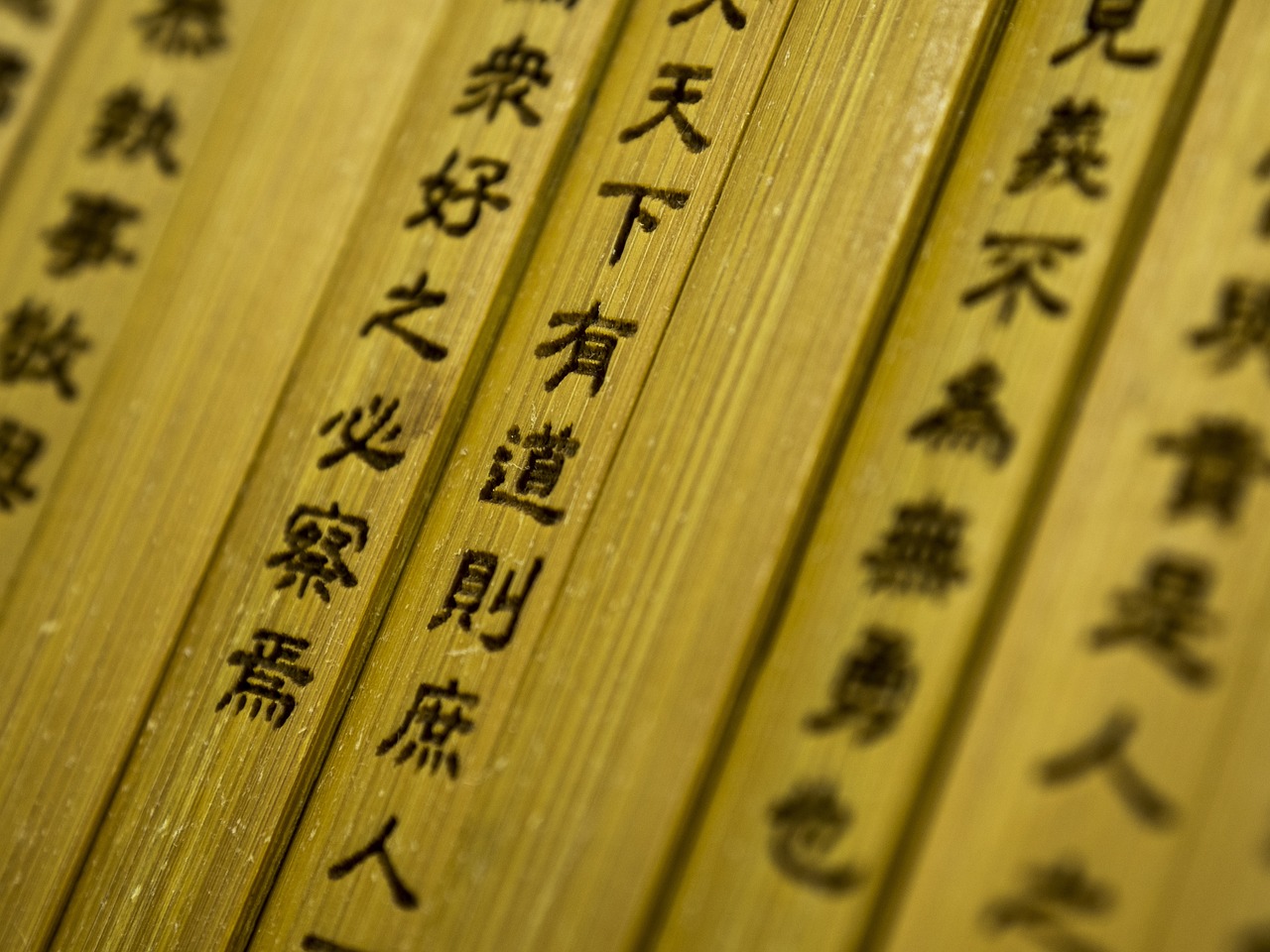
Confucian Ethics in Governance
Confucius, a name that resonates through the corridors of history, placed immense emphasis on the moral integrity of leaders. His philosophy suggests that a ruler's character is not just a personal trait but a cornerstone of effective governance. Imagine a ship navigating through turbulent waters; without a skilled captain, it risks capsizing. Similarly, a society led by a morally upright leader is poised for stability and prosperity. Confucius believed that the ethical conduct of rulers directly impacts societal harmony and order, making his teachings crucial for understanding governance.
Central to Confucian ethics in governance is the idea that rulers should embody the virtues of Ren (benevolence) and Li (ritual propriety). These principles are not merely lofty ideals; they serve as practical guidelines for leaders. When a ruler practices Ren, they cultivate a sense of compassion and empathy, fostering a government that prioritizes the welfare of its citizens. This is akin to a gardener nurturing their plants, ensuring that each one has the resources it needs to thrive. In contrast, a ruler who neglects these virtues risks sowing the seeds of discord and dissatisfaction among the populace.
Furthermore, Confucius advocated for the concept of the Junzi, or the noble person, as an ideal model for leaders. The Junzi is characterized by qualities such as wisdom, integrity, and a deep commitment to ethical behavior. This archetype serves as a benchmark for rulers, reminding them that their authority is not merely a privilege but a responsibility. A Junzi understands that their actions have far-reaching consequences, much like a pebble creating ripples in a pond. Thus, the cultivation of Junzi-like qualities among leaders is essential for fostering a just and equitable society.
In the context of governance, Confucian ethics also emphasize the importance of education and self-cultivation. Confucius believed that leaders should be lifelong learners, continually striving to improve themselves and their understanding of the world. This commitment to personal growth is crucial, as it enables leaders to make informed decisions that benefit their communities. Imagine a chef constantly refining their skills; only through practice and dedication can they create dishes that delight the palate. Similarly, leaders who engage in self-reflection and education are better equipped to navigate the complexities of governance.
Moreover, the application of Confucian ethics in governance extends beyond individual leaders to encompass the entire political system. A government that integrates these principles into its policies and practices is more likely to cultivate a culture of respect, accountability, and social responsibility. For instance, policies that prioritize community welfare, promote education, and encourage civic engagement reflect the core tenets of Confucian philosophy. This holistic approach creates a governance framework that not only addresses immediate societal needs but also fosters long-term stability and growth.
In conclusion, the relevance of Confucian ethics in governance cannot be overstated. By emphasizing the moral integrity of leaders, the cultivation of the Junzi, and the importance of education, Confucius offers a timeless framework for effective and ethical governance. As we navigate the complexities of modern society, his teachings remind us that the character of our leaders is paramount to the health and harmony of our communities. Just as a well-tended garden flourishes, so too can a society thrive under the guidance of principled leadership.
- What is the role of ethics in governance according to Confucianism?
Confucianism posits that ethics are foundational to governance, emphasizing that moral integrity and benevolence in leaders lead to a harmonious society. - Who is the Junzi in Confucian philosophy?
The Junzi, or noble person, is an ideal leader who embodies virtues such as wisdom, integrity, and ethical behavior, serving as a role model for society. - How can Confucian principles apply to modern governance?
Confucian principles can guide contemporary leaders in fostering ethical governance, promoting education, and prioritizing the welfare of citizens.
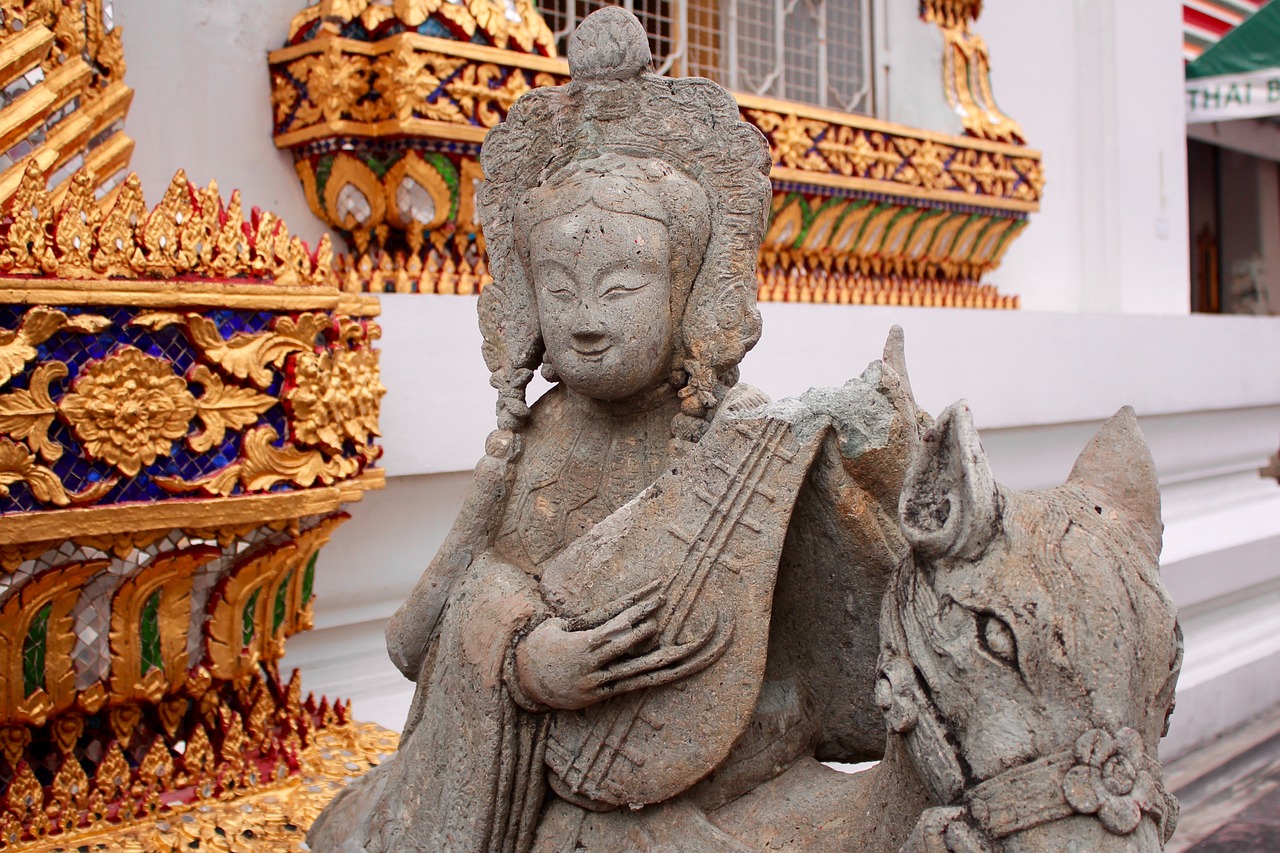
The Role of the Junzi
The concept of Junzi, often translated as "noble person," stands at the heart of Confucian ethics and philosophy. But what exactly does it mean to be a Junzi? In many ways, the Junzi embodies the ideal qualities that Confucius believed every individual should strive to achieve. This notion is not merely about social status or wealth; rather, it encapsulates a set of moral and ethical standards that guide behavior and decision-making in daily life.
At its core, the Junzi represents a person who practices Ren (benevolence) and Li (ritual propriety). These qualities are essential for fostering a harmonious society. Confucius envisioned the Junzi as a role model, someone whose actions inspire others to pursue virtue and righteousness. In a world often clouded by self-interest, the Junzi acts as a beacon of moral integrity, demonstrating that true nobility comes from ethical conduct rather than mere lineage or power.
To better understand the qualities of a Junzi, let’s take a look at some of the key attributes that define this noble person:
- Moral Integrity: A Junzi is committed to doing what is right, even when faced with difficult choices. This unwavering adherence to ethics sets them apart as a leader and a role model.
- Compassion: The Junzi shows empathy and kindness towards others, recognizing the importance of human connection and the impact of their actions on society.
- Wisdom: A Junzi values knowledge and understanding. They seek to learn from experiences and apply their insights to improve themselves and their community.
- Respect for Tradition: Upholding Li is crucial for the Junzi. They understand that rituals and customs play a significant role in maintaining social order and respect.
These attributes are not just theoretical ideals; they are practical guidelines for living a fulfilling and impactful life. In ancient China, the Junzi was expected to lead by example, influencing others through their actions rather than through coercion or authority. This principle remains relevant today, as we look for leaders who embody these qualities in various sectors, from politics to business.
Moreover, the Junzi's role extends beyond personal conduct; it also encompasses social responsibility. In Confucian thought, the Junzi is seen as a steward of society, someone who actively works to promote the common good. This can involve mentoring others, engaging in community service, or advocating for justice and equality. By fulfilling these responsibilities, the Junzi contributes to the creation of a more harmonious society, where individuals are empowered to pursue their own paths while respecting the rights and dignity of others.
In conclusion, the role of the Junzi is not merely a title; it is a lifelong journey of self-improvement and ethical living. By striving to embody the qualities of a noble person, each of us can contribute to a better world, echoing Confucius's timeless wisdom. So, the next time you face a choice, ask yourself: What would a Junzi do? This simple question can guide you toward making decisions that reflect your highest values and aspirations.
- What does Junzi mean? Junzi translates to "noble person" in Confucian philosophy, representing an individual who embodies moral integrity, compassion, and wisdom.
- How can one become a Junzi? Becoming a Junzi involves cultivating virtues such as benevolence (Ren) and ritual propriety (Li) through continuous self-improvement and ethical living.
- Why is the concept of Junzi important today? The Junzi serves as a model for ethical leadership and social responsibility, encouraging individuals to contribute positively to their communities and society at large.
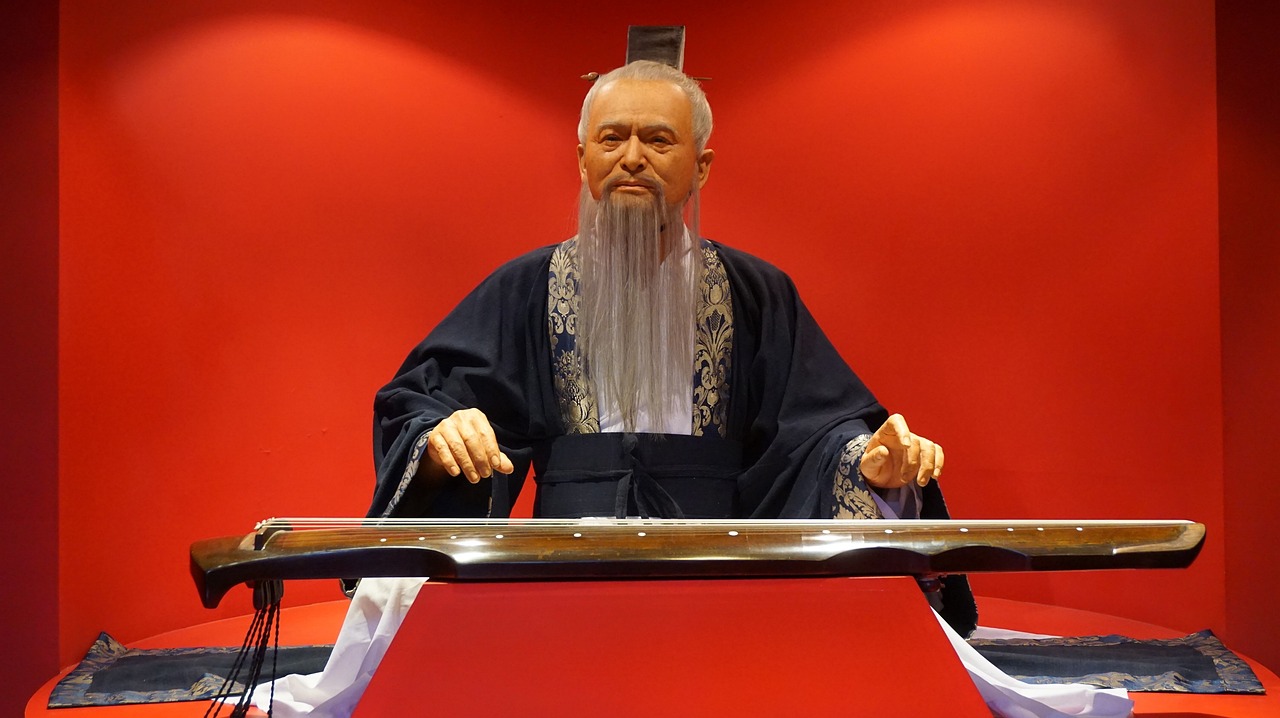
noble person,
This article explores the teachings of Confucius, examining his philosophical insights, historical context, and lasting impact on society, ethics, and governance. Discover the relevance of his ideas in today's world.
Understanding Confucius's life is essential to grasp his philosophy. This section delves into his early years, education, and the socio-political challenges he faced, shaping his thoughts and teachings.
Confucianism is built on key principles such as Ren (benevolence) and Li (ritual propriety). This part will explain these foundational concepts and their significance in moral and social conduct.
Ren, often translated as benevolence or humaneness, is central to Confucius's teachings. This section discusses its implications for interpersonal relationships and societal harmony.
Implementing Ren in everyday interactions fosters compassion and understanding. This subheading explores practical ways to embody this virtue in personal and community life.
The role of Ren extends to leadership, where benevolent rulers inspire loyalty and harmony. This section examines how leaders can embody Ren to create a just society.
Li encompasses rituals and norms that govern behavior. This section explains how Li contributes to social order and respect within Confucian philosophy.
Confucius emphasized moral integrity in leadership. This part discusses how his ideas influenced governance and the moral responsibilities of rulers throughout history.
The concept of Junzi, or the noble person, is vital in Confucian ethics. A Junzi embodies the highest moral standards and serves as a role model for others. This ideal is not just about social status; rather, it's about the virtue and integrity one brings to their interactions and responsibilities. Confucius believed that anyone could aspire to be a Junzi, regardless of their background. The qualities of a Junzi include:
- Moral Integrity: Upholding ethical principles in every action.
- Wisdom: The ability to make sound judgments and decisions.
- Compassion: A genuine concern for the well-being of others.
- Respect: Showing reverence for tradition and the teachings of the past.
These traits are not just abstract concepts; they are practical guidelines for living a life that positively impacts society. A Junzi is seen as a beacon of hope, inspiring others to pursue their own paths of virtue and excellence.
Confucianism's relevance persists in contemporary politics. This subheading examines how Confucian principles can inform modern governance and ethical leadership practices.
1. What does Junzi mean in Confucianism?
Junzi, often translated as "noble person," refers to an individual who embodies virtue and moral integrity, serving as a role model for others in society.
2. Can anyone become a Junzi?
Yes! Confucius believed that anyone could aspire to be a Junzi by cultivating moral virtues and striving for personal excellence, regardless of their social status.
3. How does Confucianism impact modern governance?
Confucianism emphasizes ethical leadership, moral integrity, and social harmony, which can guide contemporary political practices and decision-making processes.
4. What are the core values of Confucianism?
The core values include Ren (benevolence), Li (ritual propriety), and the importance of education, family, and social harmony.
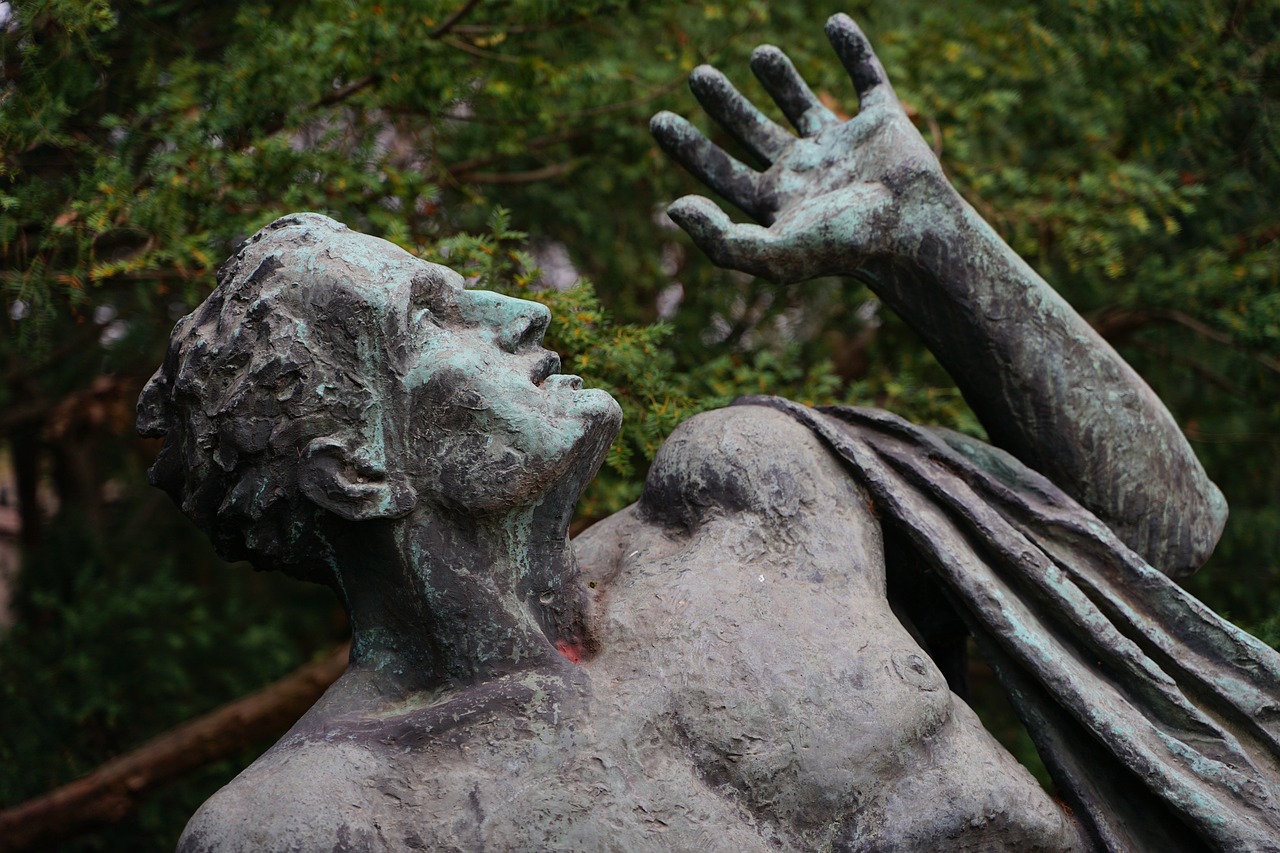
is vital in Confucian ethics. This section explores the qualities of a Junzi and their importance in society.
In the realm of Confucian ethics, the concept of the Junzi holds a place of paramount importance. Often translated as "noble person" or "gentleman," the Junzi embodies the ideal qualities that Confucius believed every individual should aspire to achieve. But what exactly does it mean to be a Junzi? Well, it’s not just about social status or wealth; it’s about moral integrity, self-discipline, and a deep commitment to the welfare of others. Imagine a leader who not only commands respect but also inspires loyalty through their virtuous actions—this is the essence of a Junzi.
At the heart of the Junzi's character are several key qualities that are essential for personal development and societal harmony. These include:
- Wisdom: The ability to make sound judgments and decisions based on knowledge and experience.
- Benevolence (Ren): A deep-seated compassion for others, extending kindness and understanding.
- Ritual Propriety (Li): Adherence to social norms and rituals that foster respect and order.
- Integrity: A commitment to honesty and moral principles, even when faced with challenges.
- Filial Piety: Respect and devotion towards one's family and ancestors, which strengthens social bonds.
These qualities not only define the Junzi but also serve as a guiding framework for individuals in their daily lives. By striving to cultivate these traits, one can contribute to a more just and harmonious society. The Junzi is not merely a title; it is a lifelong pursuit of excellence in character and conduct.
Moreover, the importance of the Junzi extends beyond personal virtue. In Confucian thought, the Junzi plays a crucial role in governance and leadership. A ruler who embodies the qualities of a Junzi can lead by example, fostering a culture of respect and moral integrity within their realm. This is particularly vital in today's world, where ethical leadership is often lacking. The Junzi serves as a beacon of hope, demonstrating that through personal development and commitment to the greater good, we can inspire change in our communities and beyond.
In conclusion, the Junzi is a vital concept within Confucian ethics, representing the highest ideals of human behavior. By embracing the qualities of wisdom, benevolence, integrity, and respect, individuals can not only elevate their own lives but also contribute to a more harmonious society. In a world that often seems chaotic and divided, the teachings of Confucius remind us of the potential for goodness that lies within each of us.
- What is the meaning of Junzi? The Junzi is often referred to as the "noble person" in Confucianism, embodying virtues such as wisdom, benevolence, and integrity.
- How does one become a Junzi? Becoming a Junzi involves a lifelong commitment to self-improvement and adherence to moral principles, including the cultivation of virtues like Ren and Li.
- Why is the Junzi important in society? The Junzi serves as a moral exemplar, inspiring others to strive for ethical behavior and contributing to social harmony and effective governance.
- Can anyone be a Junzi? Yes, anyone can aspire to be a Junzi by developing their character and committing to virtuous living, regardless of their social status.

Confucianism and Modern Politics
In today's rapidly changing political landscape, one might wonder: can ancient philosophies still hold sway? The answer is a resounding yes! Confucianism, with its emphasis on ethics, morality, and societal harmony, offers a framework that can guide modern governance. As we navigate complex issues like corruption, inequality, and social justice, the teachings of Confucius remind us of the importance of moral integrity in leadership.
At the heart of Confucian thought is the belief that a ruler's legitimacy stems from their moral character rather than just their position of power. This principle is especially relevant today, where political scandals often erode public trust. Imagine a political landscape where leaders prioritize Ren (benevolence) over mere ambition. Such a shift could foster a culture of accountability and inspire citizens to engage more actively in their communities.
Moreover, Confucianism encourages a participatory approach to governance, where the voices of the people are valued. This can be seen in the concept of the Junzi, or noble person, who is not just a leader but also a model citizen. In modern terms, this translates to leaders who are approachable, empathetic, and committed to the welfare of their constituents. The idea is that when leaders embody these qualities, they cultivate a sense of trust and cooperation among the populace.
Another critical aspect of Confucianism in contemporary politics is its focus on education as a means of cultivating virtue. Confucius believed that education should not just impart knowledge but also shape character. In modern governance, this could mean investing in educational programs that emphasize ethical leadership and civic responsibility. By nurturing a generation of leaders who understand the importance of moral integrity, we can create a more just and equitable society.
However, it's essential to recognize that incorporating Confucian principles into modern politics is not without its challenges. In a globalized world, where diverse cultures and ideologies clash, finding common ground can be difficult. Yet, the universal values of respect, empathy, and community that Confucianism advocates can serve as a bridge, fostering dialogue and understanding among different political factions.
In conclusion, as we face the myriad challenges of the 21st century, the teachings of Confucius provide a timeless guide. By embracing the core values of Confucianism, modern leaders can not only enhance their governance but also contribute to a more harmonious society. The question remains: are we ready to take these ancient lessons to heart and apply them in our pursuit of a better future?
- What is Confucianism? Confucianism is a philosophical and ethical system based on the teachings of Confucius, emphasizing morality, social relationships, and justice.
- How does Confucianism influence modern politics? Confucianism influences modern politics by promoting ethical leadership, moral integrity, and the importance of education in shaping virtuous leaders.
- Can Confucian principles be applied globally? Yes, the universal values of respect and community found in Confucianism can foster dialogue and understanding across diverse cultures and political systems.
- What is the role of the Junzi in society? The Junzi, or noble person, serves as a moral exemplar, embodying the virtues of benevolence and integrity, and inspiring others to cultivate similar qualities.
Frequently Asked Questions
- Who was Confucius and why is he important?
Confucius, a Chinese philosopher who lived over 2,500 years ago, is renowned for his teachings on ethics, morality, and social harmony. His ideas laid the foundation for Confucianism, a system of thought that has profoundly influenced Chinese culture and governance, as well as other societies. His emphasis on virtues like Ren (benevolence) and Li (ritual propriety) continues to resonate in modern discussions about morality and leadership.
- What are the core principles of Confucianism?
The core principles of Confucianism revolve around the concepts of Ren and Li. Ren represents humaneness and benevolence towards others, while Li refers to the rituals and norms that govern social interactions. Together, these principles promote a harmonious society where individuals act with kindness and respect, fostering positive relationships and social order.
- How can I practice Ren in my daily life?
Practicing Ren in daily life involves cultivating compassion, empathy, and understanding towards others. Simple acts like listening attentively, helping those in need, and showing gratitude can embody this virtue. Additionally, engaging in community service and fostering open communication can strengthen interpersonal relationships and promote a sense of belonging.
- What is the significance of Li in Confucianism?
Li plays a crucial role in establishing social order and respect within society. By adhering to rituals and norms, individuals contribute to a sense of stability and predictability in their interactions. This principle encourages people to act with decorum and respect, which ultimately fosters a harmonious community where everyone knows their roles and responsibilities.
- How did Confucius influence governance?
Confucius emphasized the importance of moral integrity and ethical leadership in governance. He believed that rulers should lead by example, embodying virtues like Ren to inspire loyalty and trust among their subjects. His teachings have influenced political thought throughout history, advocating for leaders to prioritize the welfare of the people over personal gain.
- What is the concept of Junzi and why is it important?
The concept of Junzi, often translated as "noble person," is central to Confucian ethics. A Junzi embodies virtues such as righteousness, wisdom, and integrity, serving as a moral exemplar in society. This ideal encourages individuals to strive for personal growth and ethical conduct, ultimately contributing to a more just and harmonious community.
- Is Confucianism relevant in modern politics?
Absolutely! Confucianism remains relevant in contemporary politics, offering insights into ethical leadership and governance. Many modern leaders draw on Confucian principles to promote social harmony, accountability, and moral responsibility. By integrating these timeless teachings into today's political landscape, societies can work towards more just and equitable governance.


